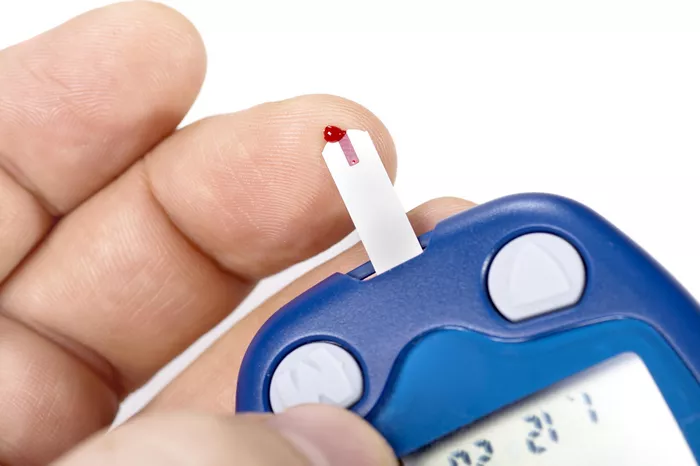Pregnancy is a transformative journey marked by numerous milestones and healthcare considerations, including routine screenings to ensure the health and well-being of both mother and baby.
Among these screenings, glucose testing plays a crucial role in identifying conditions such as gestational diabetes mellitus (GDM) that can impact maternal and fetal outcomes.
In this comprehensive guide, we delve into the concept of the normal range for pregnancy glucose testing, exploring what it entails, why it matters, and how it influences prenatal care and management.
Understanding Glucose Testing During Pregnancy
Glucose testing during pregnancy is a standard component of prenatal care aimed at assessing maternal blood sugar levels and detecting abnormalities that may indicate gestational diabetes mellitus (GDM) or other glucose-related disorders.
GDM is a condition characterized by elevated blood glucose levels during pregnancy, which can increase the risk of complications for both mother and baby if left untreated. Screening for GDM typically occurs between 24 and 28 weeks of gestation, although women with risk factors may be screened earlier in pregnancy.
Factors Influencing Glucose Levels During Pregnancy
Several factors can influence blood glucose levels during pregnancy, contributing to variations in glucose tolerance and metabolism among pregnant individuals. These factors include:
1. Hormonal Changes:
Pregnancy is associated with dynamic fluctuations in hormone levels, including insulin-resistant hormones such as human placental lactogen (hPL), estrogen, and progesterone. These hormonal changes can impair insulin sensitivity and glucose uptake, leading to higher fasting and postprandial glucose levels.
2. Genetic Predisposition:
Genetic factors play a significant role in determining an individual’s susceptibility to gestational diabetes and other glucose-related disorders. Women with a family history of diabetes or previous gestational diabetes are at increased risk of developing GDM, reflecting underlying genetic influences on glucose metabolism and insulin secretion.
3. Body Mass Index (BMI):
Maternal obesity and excess weight gain during pregnancy are established risk factors for gestational diabetes, as adipose tissue produces hormones and cytokines that promote insulin resistance and inflammation. Women with higher BMIs may have impaired glucose tolerance and elevated fasting glucose levels, increasing their likelihood of developing GDM.
4. Ethnicity and Race:
Ethnicity and race influence the prevalence and risk of gestational diabetes, with certain populations, including Hispanic, African American, Asian, and Indigenous women, exhibiting higher rates compared to Caucasian women. Ethnic disparities in gestational diabetes prevalence may reflect genetic, cultural, socioeconomic, and environmental factors that influence metabolic health and diabetes risk.
Interpreting Glucose Test Results
Glucose testing during pregnancy typically involves either a one-step or two-step approach to screening and diagnosis:
One-Step Approach:
The one-step approach involves performing a 75-gram oral glucose tolerance test (OGTT) in which blood glucose levels are measured before and at specified intervals after consuming a glucose solution.
A single abnormal value may indicate gestational diabetes, with diagnostic criteria varying based on international guidelines.
Two-Step Approach:
The two-step approach consists of an initial screening test, such as the one-hour glucose challenge test (GCT), followed by a diagnostic OGTT for individuals who screen positive on the initial test.
Abnormal results on the diagnostic OGTT confirm the diagnosis of gestational diabetes, with specific cutoff values for fasting, one-hour, two-hour, and three-hour glucose levels.
Normal Range for Pregnancy Glucose Test
The normal range for pregnancy glucose testing encompasses a spectrum of blood glucose values that are considered typical or expected for pregnant individuals without evidence of glucose intolerance or impaired glucose metabolism.
While specific cutoff values may vary based on screening protocols, diagnostic criteria, and gestational age, the following parameters are commonly used to define the normal range for pregnancy glucose testing:
1. Fasting Glucose:
Typically, fasting glucose levels below 92 mg/dL (5.1 mmol/L) are considered within the normal range for pregnant individuals. Fasting glucose values between 92 mg/dL and 125 mg/dL (5.1 mmol/L to 6.9 mmol/L) may indicate impaired fasting glucose (IFG) or pre-diabetes, while values equal to or above 126 mg/dL (7.0 mmol/L) are diagnostic of diabetes.
2. One-Hour Glucose:
For the one-hour glucose challenge test (GCT), a one-hour glucose level below 180 mg/dL (10.0 mmol/L) is typically considered within the normal range. Values equal to or above 180 mg/dL (10.0 mmol/L) may prompt further evaluation with a diagnostic OGTT to confirm or rule out gestational diabetes.
3. Two-Hour Glucose (OGTT):
During the diagnostic OGTT, a two-hour glucose level below 153 mg/dL (8.5 mmol/L) is generally considered within the normal range. Two-hour glucose values equal to or above 153 mg/dL (8.5 mmol/L) meet the diagnostic criteria for gestational diabetes.
Conclusion
In conclusion, establishing a normal range for pregnancy glucose testing is essential for guiding prenatal care, identifying gestational diabetes, and promoting optimal maternal and fetal health outcomes.
By understanding the factors that influence blood glucose levels during pregnancy and interpreting glucose test results within the context of established norms and diagnostic criteria, healthcare providers can deliver informed, evidence-based care tailored to the individual needs of pregnant individuals.
Through early detection, comprehensive management, and ongoing monitoring, gestational diabetes can be effectively managed, enabling women to navigate their pregnancy journey with confidence and support the health and well-being of themselves and their babies.



























